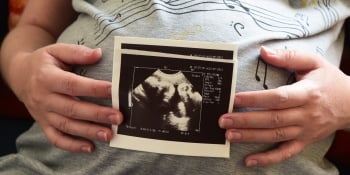Published: 14.06.2023

The European Court of Human Rights has once again rejected a series of complaints against Poland's ban on eugenic abortion, in effect since a 2020 Constitutional Court ruling. The applicants claimed that protecting the lives of disabled unborn children constitutes a form of torture and violates their right to privacy. The Court showed that they had not explained how specifically they were harmed by the ban, when most of them were not even pregnant. In total, the ECHR has received some 1,000 complaints in such cases. So far, the Court has not upheld a single one. The Ordo Iuris Institute systematically joins the proceedings in these cases as a friend of the court, standing up for the right to life of unborn children.
In 2020, after years of efforts by Polish pro-life circles headed by the Ordo Iuris Institute, eugenic abortion was outlawed. This was the result of a Constitutional Court ruling on October 22, 2020, (K 1/20) stating that Article 4a (1) (2) of the abortion law, allowing the killing of an unborn child due to its "severe and irreversible handicap" or "incurable disease threatening its life," is incompatible with everyone's constitutional right to life.
Between then and now, a group of about 1,000 women, largely representatives of left-wing feminist groups, have filed complaints with the European Court of Human Rights. According to the complainants, protecting the lives of disabled unborn children violates their right to respect for private and family life (Article 8 of the European Convention on Human Rights) and the prohibition of torture (Article 3 of the European Convention on Human Rights).
The Ordo Iuris Institute systematically joins proceedings in these cases, acting as a friend of the court. In legal opinions submitted, the Institute points out that unborn children have the right to life guaranteed by Article 2 of the Convention. In addition, Ordo Iuris cites the jurisprudence of the Court itself, which has so far systematically emphasized that a right to abortion does not derive from Article 8 of the Convention.
Yesterday, the European Court of Human Rights declared inadmissible 8 complaints by women drawn up on the same template prepared by the Foundation for Women and Family Planning (FEDERA). This is a non-governmental organization working to deprive unborn children of their right to life and legalize abortion on demand.
Of the eight complainants, six were not pregnant at all, and only cited "stress, fear, humiliation" caused by the outlawing of eugenic abortion in 2020. The other two applicants were pregnant, but, as they themselves admitted in their complaints, their unborn children were healthy, so they did not plan to have an abortion.
- The Strasbourg Court could not rule otherwise, the complaints were obviously inadmissible under Articles 34 and 35 of the Convention. The applicants forgot that the ECHR is not a kind of constitutional court, reviewing the compatibility of national law with the Convention, but a court of fact, which deals with complaints about specific violations of Convention rights suffered by specific individuals. In this case, on the other hand, the applicants, who did not even intend to undergo a eugenic abortion, tried, as it were, to "challenge" to the ECHR the Polish law regulating the protection of life, which is not allowed," stressed Weronika Przebierała, director of the International Law Center of the Ordo Iuris Institute.
The ECHR's decision of June 8, 2023 in the case of A.M. and others v. Poland.

· The European Parliament adopted a resolution calling for the inclusion of the so-called right to abortion in the Charter of Fundamental Rights of the European Union.

· The anti-life projects proposed by our ruling coalition are only the beginning of a political process leading to the normalisation of the mass killing of unborn children.
· The French law of 1974, which was only supposed to open the floodgates to prenatal killing for women in distress, in fact established a new legal foundation through which almost a quarter of a million children lose their lives in France every year.

· Abortion advocates manipulate human rights slogans which remain relevant to Polish citizens in order to force the public into supporting abortion.